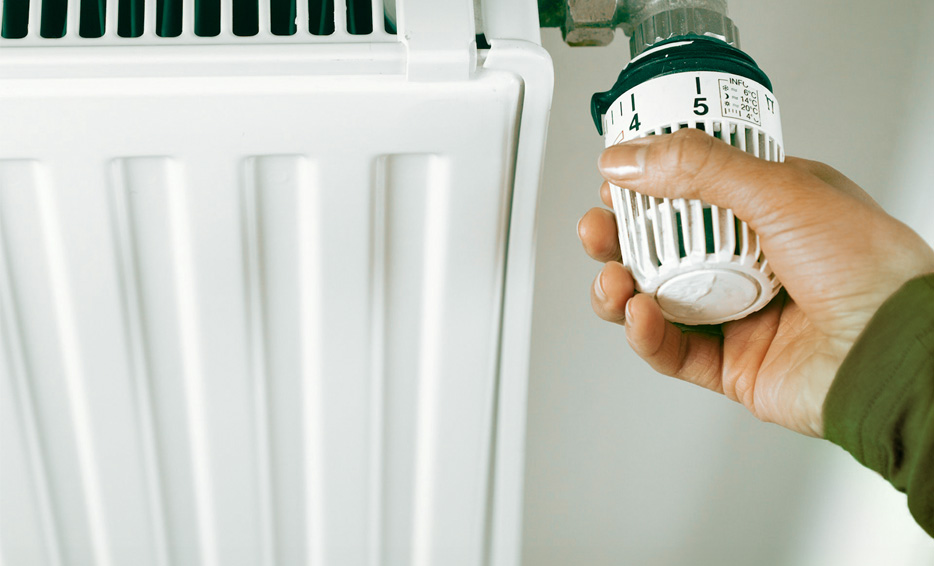

Small acts, major total savings
When you have suitable room temperature and well-functioning radiators, living will be not only more comfortable, but also more energy-efficient and environmentally friendly. The biggest energy guzzler at home is heating: it accounts for about two thirds of the residential energy consumption. Fortunately, there are many ways to influence the heating energy consumption and thus the housing costs from heating.
Set an appropriate room temperature
The biggest energy guzzler at home is heating: it accounts for about two thirds of the residential energy consumption. Fortunately, there are many ways to influence the heating energy consumption and thus the housing costs from heating. Adjusting the room temperature of dwellings increases living comfort and improves the indoor air quality. Lowering the temperature in the living areas to 21–22 °C clearly reduces electricity consumption.
Save energy by lowering the temperature in rooms where you do not spend time for longer period on a regular basis. Hold the interior doors closed to rooms that you want to keep warmer or cooler than others. If you are away from home for a longer time, lower the temperature.
However, you should avoid changing the temperature too sharply – people get used to a reduction of 0.5–1.0 degrees in room temperature in about a week. Measure the temperature in the middle of the room at a height of slightly over one meter above the floor. If the apartment is too hot, turn the radiator thermostat down – do not air out the heat unnecessarily. If the temperatures remain too high or too low despite the adjustment of the radiator thermostat, contact your building service company.
Recommended temperatures:
- Living areas 20–21 °C
- Bedrooms 18–20 °C
- Bathroom 23–24 °C
- Staircase areas in apartment blocks 17–18 °C
- Warehouse 12 °C
- Garage 5 °C
When you lower the room temperature by one degree, your heating costs decrease by 5%
Cool down your home in summer heat
- Keep the doors and windows closed during the day
- If you need to open a window, do it on the shady side of the house
- Draw curtains in front of the windows, lower the blinds
- Turn off any unnecessary electrical devices or appliances
- Avoid heating the oven or the apartment-specific sauna
- Take advantage of the coolness of the night for airing the apartment
- Choose an energy-efficient fan or air conditioner
Well-functioning radiators, warm home
- Do not place a sofa, pieces of furniture or curtains in front of the radiator
- The radiator works better with some free space around it
- Do not dry large pieces of clothing on top of the radiator
- Move any heat-generating electrical devices or appliances away from the vicinity of the radiator thermostat – electrical devices heat the air and shut down the thermostat
- Keep the radiators clean and dust-free – use a feather duster or clean with a cloth and mild detergent
Advice for airing the apartment:
- When airing the apartment, do it quickly using cross-draught
- Do not leave the windows open for a long time
- Keep the replacement and exhaust air vents of the apartment clean
- Replace any filters regularly.
Own sauna and its air vent:
- Reduce ventilation during heating
- Adjust to a suitable level while taking sauna
- Open the air vent after sauna
- Reduce ventilation again after the sauna has dried
Do not fully close the fresh air vents even in cold winter temperatures.


